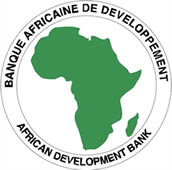The Government of Ghana Index-Linked Bonds (GGILBs) was introduced in 2001, which as part of the reserve requirements converted Government of Ghana (GoG) short-term liabilities into long-term loans. BoG requires banks to hold 15% of their total deposits in GGILBs. The GGILB is now being phased out by the new 2 and 3 year fixed or floating bonds. Currently, there are 27 banks operating in the formal banking sector. They are regulated by the Bank of Ghana. Liberalising entry and encouraging foreign banks and investors in the financial services industry has increased competition in the banking industry as well as the introduction of strong business practices, technology, products, and risk management systems.
The current licensing policy of the Bank of Ghana is to limit entry of foreign banks to truly internationally active financial institutions. Bills of Exchange Act Ghana is essentially a cash-based economy with embedded high transaction costs. In recognition of this, the Bank of Ghana is undertaking reforms in the legal, institutional, and infrastructural framework of the payment system to make the Ghanaian financial system modern and competitive, so investors are encouraged take this aspect into consideration. A draft bill known as the Bills and Cheques Bill is now before Parliament. It is expected to replace the Bills of Exchange Act when passed. The draft bill provides for electronic presentation of cheques and amends various sections of the Bills of Exchange Act to bring it in line with current business trends and practices. Automatic Clearing House. The Bank of Ghana is introducing Code line Cheque Truncation to allow very fast cheque clearing as well as the Automated Clearing House (ACH) for the clearing of electronic debits and credits. The process of direct debit does not exist presently in Ghana because of the absence of an ACH. Central Securities Depository. The Bank of Ghana has established a Central Securities Depository (CSD). The CSD makes it possible for records of ownership of individual securities to be maintained centrally by the respective primary dealers. This should reduce the risks to investors that arise from possible poor record-keeping or any dealer malfeasance.
Capital Markets: Investors’ confidence in Ghana’s capital market has been on the rise over the past decade. Currently, there are about 27 listed companies, 10 brokerage firms, 5 mutual funds and 1-unit trust on the GSE. A level playing field has been set by the Securities and Exchange Commission (SEC) to protect the interest of investors and all other parties. Demutualisation The objective to demutualise the Ghana Stock Exchange (GSE) stems from the current structural constraints that are faced by the GSE as a non-profit organisation. Thus, demutualising GSE is aimed at fostering greater diversity of ownership which will allow for an enhanced public representation in the governance of the Exchange and help it remain competitive and responsive to the demands of its market constituents.
REFERENCE:
https://www.kpmg.com/GH/en/Documents/Doing%20Business%20in%20Ghana%202015.pdf




































